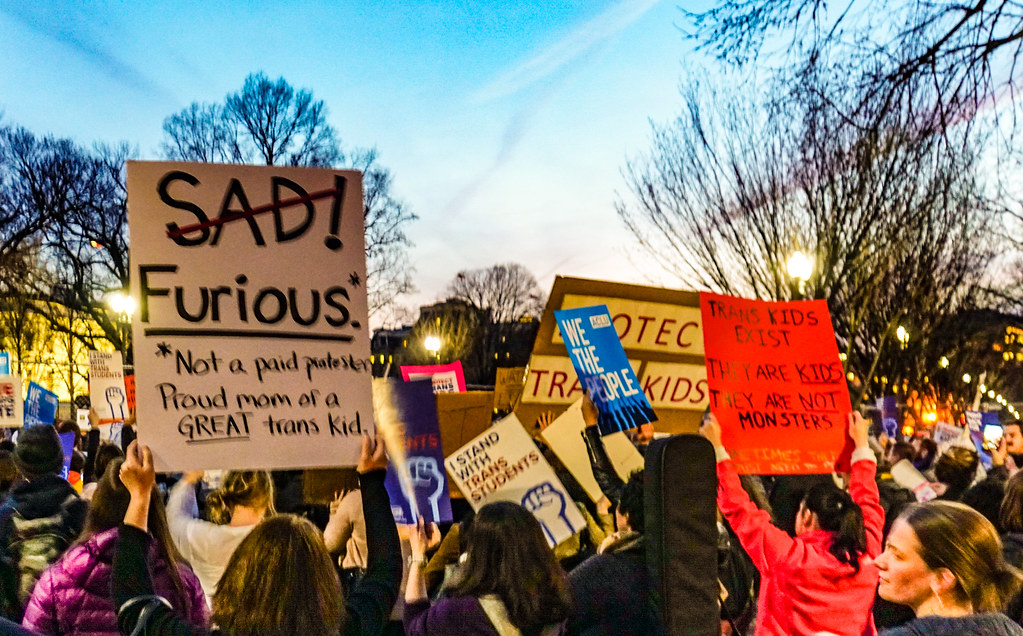Author’s note: This article was written in light of Transgender Awareness Week (11/13/2020 – 11/19/2020) and the Transgender Day of Remembrance (11/20/2020) which are held to draw attention to and memorialize the victims of violence from transphobia. Learn more here.
Contrary to common beliefs in Western countries, Turkey, is relatively more liberal compared to other Islamic states. The country has been allowing transgender individuals to legally change their sex since 1988— given that they undergo sex reassignment surgery— being the first Middle Eastern country to legalize sex change apart from Iran. The Iranian government recognizes transgender individuals as having psychosexual problems (such as gender identity disorder), hence provides them with a medical solution— sex reassignment surgery. Not only did the government legalize sex reassignment in 1979, but they also subsidize the procedure to “fix the issue” with aims of protecting societal wellbeing.
According to Article 10 of the Turkish constitution, everyone is equal by law, and discrimination is prohibited, hence transgender individuals should be treated as equals in society. Although changing one’s gender/sex is legally recognized in Turkey and all means of discrimination are prohibited by law, transgender individuals have continued to face prejudice to this day. During the 1990s several reports have been published about police brutality on transgender individuals by many outlets such as Turkey’s Human Rights Association.
The reports have stated that transgender individuals were often harassed and beaten by police officers. The police violence has been a key obstacle towards achieving equality in Turkish society. Extreme examples of police violence were observed during these times, even to the extent where an apartment building housing several transgender individuals was burned with no justification, other than the fact that its residents were transgender. On May 21st, 2008, Human Rights Watch published a report reflecting on the violence transgender individuals face in Turkey. The report documented how transgender individuals endured beatings, police brutality, robberies, and even death threats, and upon further investigation, it was seen that responses from authorities have been consistently inadequate.
Through time, society has become more accepting towards transgender individuals and some public transgender figures have become vocal about trans activism. Bülent Ersoy, for instance, started wearing makeup and feminine clothing to her performances during the ’70s. She then went through sex reassignment surgery and became the first openly transgender celebrity in Turkey. Recently, she has faced severe backlash and hatred in Turkish society and has become a publicly mocked figure, to the extent where her name has become synonymous with being an insult. Nevertheless, Bülent Ersoy is still active today and has been an inspiration to many transgender individuals in Turkey to be more open about their identities.
Nowadays public figures who are openly transgender face less backlash compared to Bülent Ersoy. In 2011, by running as a candidate for deputy in the main opposition party in Turkey (Republican People’s Party), Öykü Evren Özen became the first transgender lawmaker in Turkey during the elections. Through the support and dedication of Öykü Evren Özen, the Republican People’s Party proposed a law that specifically protects the rights of LGBTQ+ individuals. During the next election in 2015, the Republican People’s Party had two more transgender female candidates, Deva Özenen and Niler Albayrak, who both ran during the general elections. There was a drastic change in the reaction of the public since Bülent Ersoy, and the involvement of transgender individuals in parliament hasn’t ignited nearly as much backlash and recognition.
In 2020 a public figure, Ali Erbaş, head of Turkey’s Religious Affairs Directorate, used homophobic speech, especially directed towards transgender individuals. Upon the unresponsive state of the president and leading party, regarding Erbaş’s hateful speech, the Ankara Bar Association filed a complaint towards Erbaş. Ankara Bar Association’s response was condemned by the president, raising commotion in the country towards supporting the rights of transgender individuals. The rising commotion and support towards the transgender community affected the views of the government, leading to a criminal investigation on Erbaş conducted under the Ministry of Justice.
Turkey has been slow to catch up with already established laws against discrimination towards transgender individuals. Over time, there has been a small but ultimately insufficient improvement. Nevertheless, to this day, Turkey is still not a country where all rights of transgender individuals are protected and all prejudices are eliminated.
Edited by Olivia Shan
Photo credits: “ProtectTransKids Protest, Washington, DC USA 01095” by Ted Eytan, published on 22.02.2017, licensed under a Creative Commons Attribution-ShareAlike 2.0 Generic (CC BY-SA 2.0). No changes were made.
Kibel Aker is a first year student at McGill University and is currently double majoring in Economics and International Development Studies.

